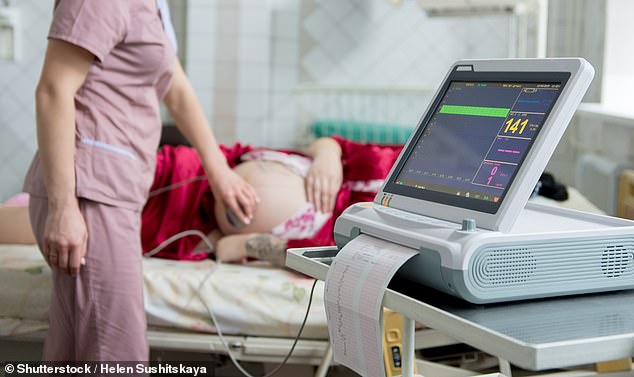More than 17,000 lives could be saved in the UK every year if healthcare was as safe as other developed countries, report suggests
More than 17,000 lives could be saved every year if healthcare in Britain were as safe as in other developed countries, a report suggests.
Researchers from Imperial College's Institute of Global Health Innovation London examined data on 38 Organization for Economic Co-operation and Development (OECD) countries.
Norway finished at the top of the rankings for patient safety, followed by Sweden and South Korea, while Britain came in 21st and Mexico last.
The experts focused on four key patient safety indicators for their rankings: maternal mortality, treatable mortality, adverse effects of medical treatment and neonatal conditions.
This includes causes of death that are mainly preventable through timely and effective healthcare, including screening and treatment, and medical blunders.
The experts focused on four key patient safety indicators for their rankings: maternal mortality, treatable mortality, adverse effects of medical treatment and neonatal conditions (file image)
The analysis shows that 17,356 lives could have been saved in Britain in 2019 if the country had performed at the level of the top 10 percent of countries.
This would have meant 15,773 fewer deaths classified as treatable deaths, 776 fewer newborn deaths, 27 fewer maternal deaths, and 780 fewer deaths due to adverse effects of medical treatment.
Many others survived poor care but suffered from preventable physical or mental disabilities not described in this report, the authors note.
The countries included in the 'Global State of Patient Safety' report, commissioned by the charity Patient Safety Watch, are all members of the OECD.
It said: 'Our country rankings for patient safety highlight existing differences in performance and clear opportunities for shared international learning.'
The researchers warn that without more global collaboration and data reporting, efforts to improve patient safety will be delayed or insufficient, putting harm and lives at risk.
They considered 89 indicators for their report, including the four used to create the rankings, but no country was able to provide them all.
Australia, New Zealand and Norway have the highest availability of patient safety data, with 75, while Britain has 68.
Professor Lord Ara Darzi, co-director of the Institute of Global Health Innovation, said: 'To improve patient safety, we must first recognize that progress is impossible without measurement.
'Our report underlines the urgent need to establish a robust global framework for collecting comprehensive patient safety data, addressing existing data gaps and implementing meaningful indicators.
'Collaboration is the key to progress, and it is imperative that we work together to improve patient safety.
“Patient safety must be evaluated through the lens of the patient, and we must wholeheartedly embrace interventions that include the perspectives of patients, families, and caregivers.”

James Titcombe, from Patient Safety Watch, said: 'In 2020, 800 women died every day worldwide from preventable causes related to pregnancy and childbirth' (stock image)
James Titcombe, from Patient Safety Watch, said: 'I am optimistic for a future of improved patient safety worldwide. But there is still much work to be done.
'In 2020, 800 women worldwide died every day from preventable causes related to pregnancy and childbirth.
'We need to monitor and improve patient safety indicators and ensure we involve patients.'
A spokesperson for the Department of Health and Social Care said: 'Patient safety is of paramount importance and any death resulting from failings in this area is unacceptable.
'As this report recognises, Britain has taken important steps to improve the safety of care.
'We delivered the first NHS Patient Safety Strategy and appointed the first Patient Safety Commissioner to raise the voice of patients across the healthcare system.
'We have also established a new independent body – the Health Services Safety Investigations Body – to investigate serious patient safety incidents and embed system-wide knowledge, and last week announced a review of the NHS duty of candor.'
